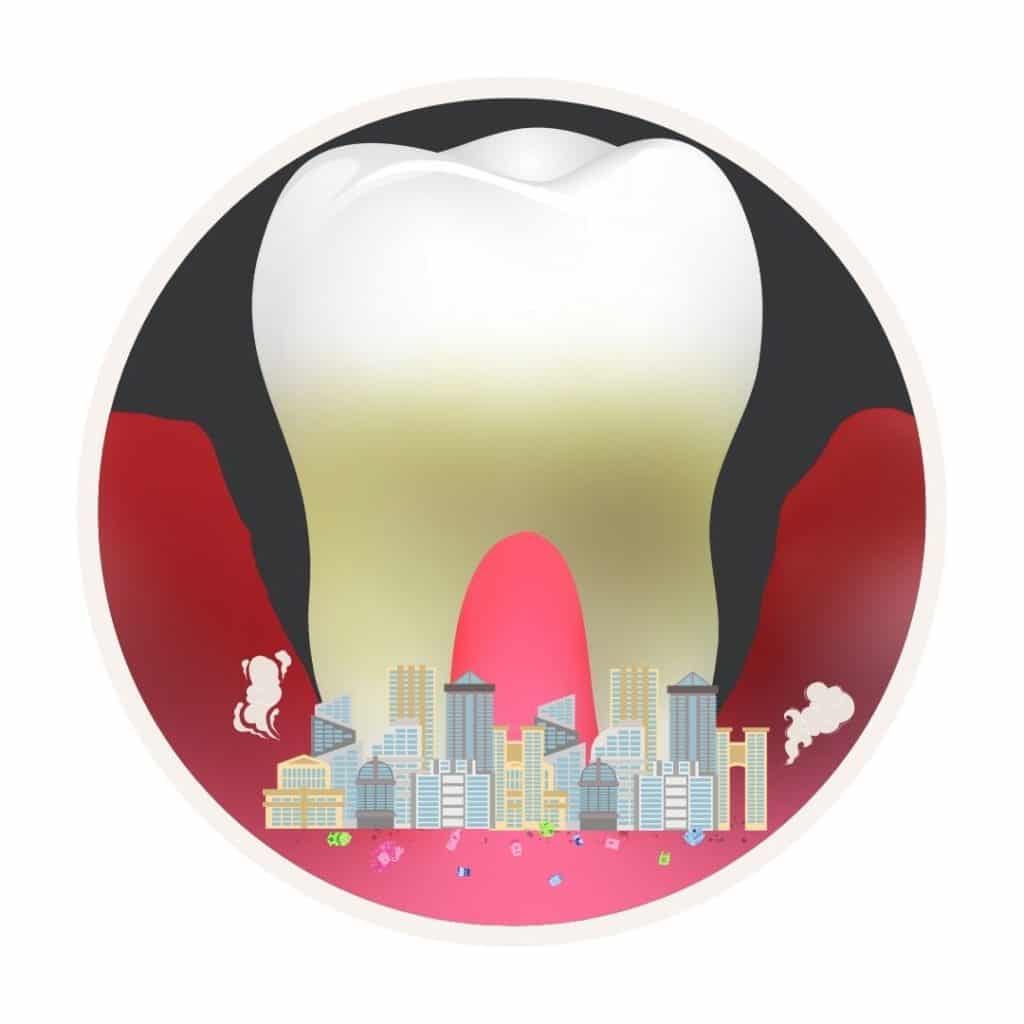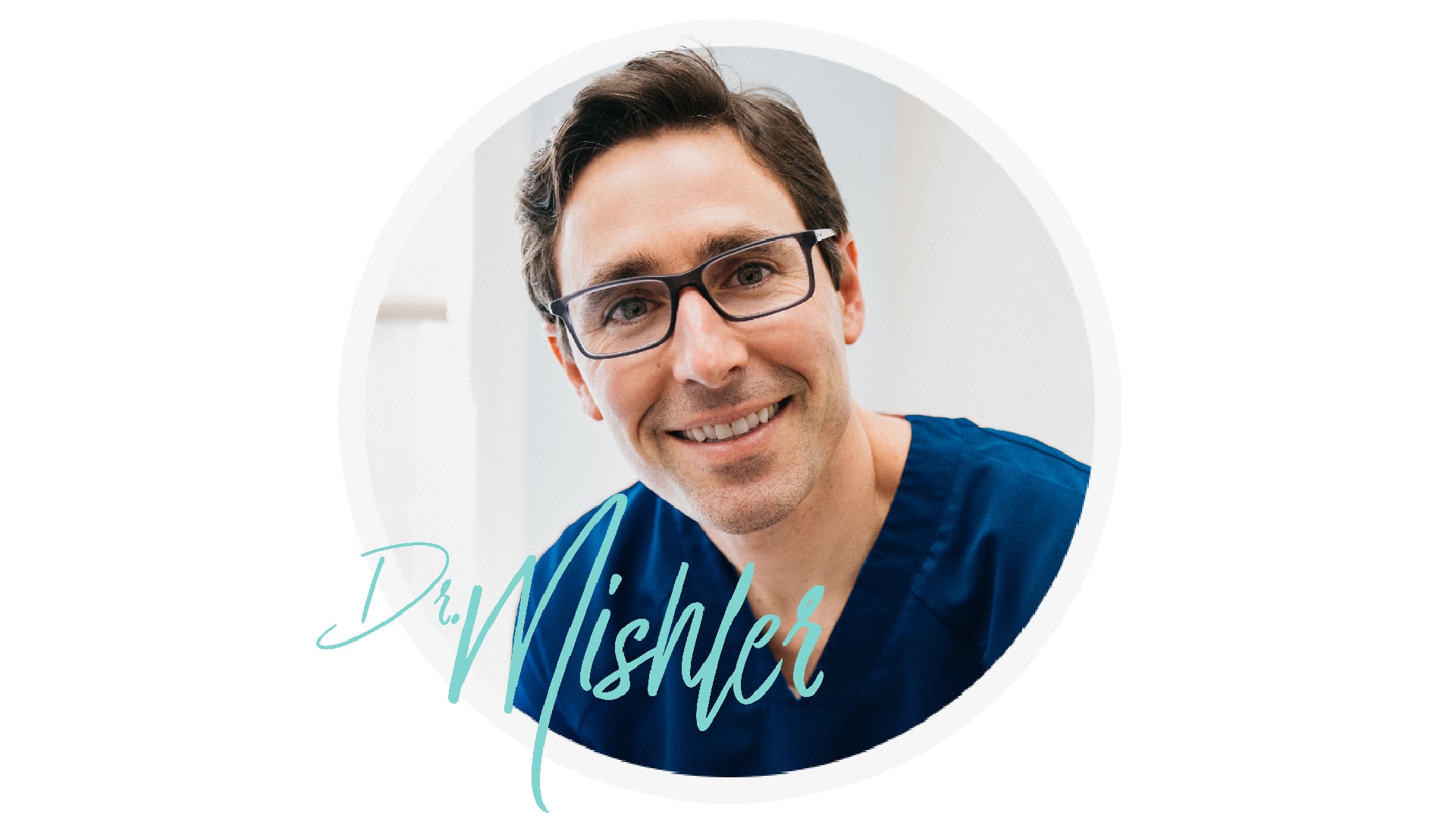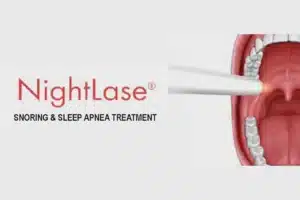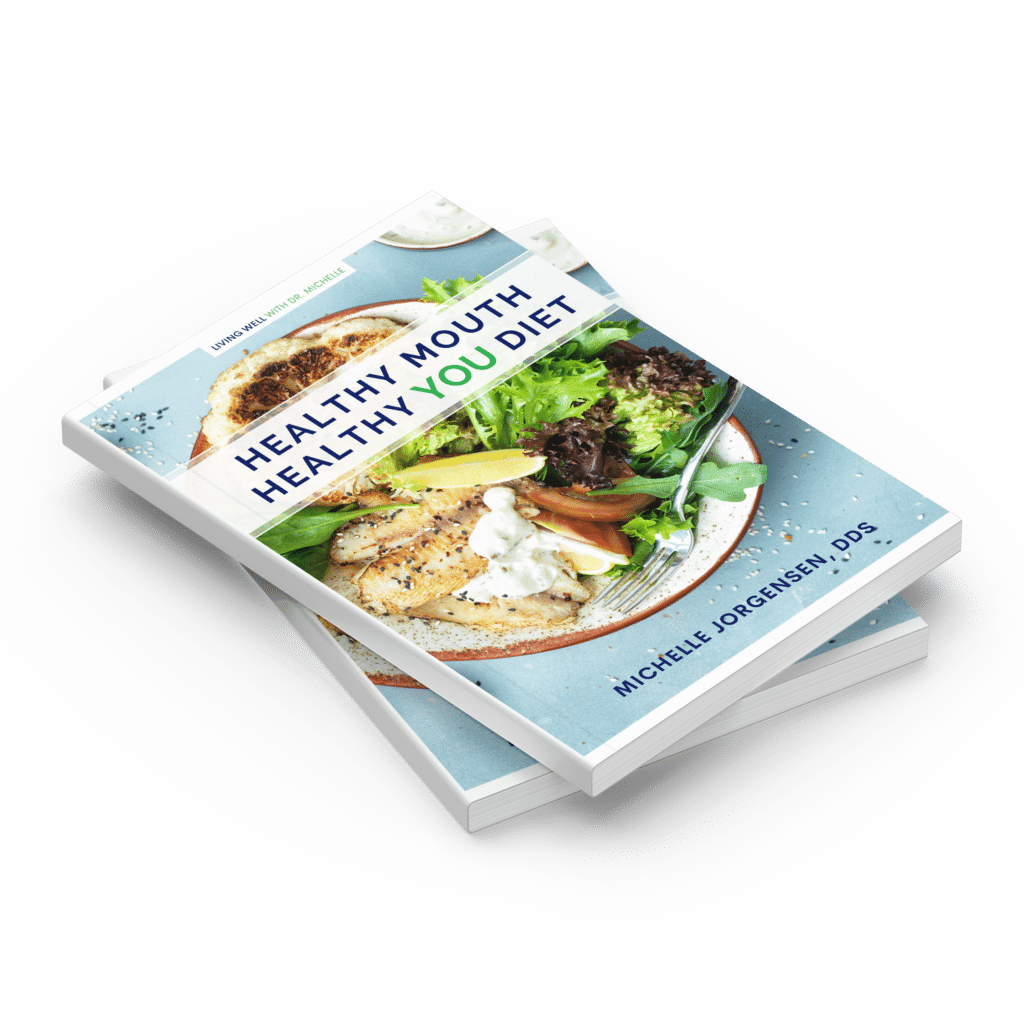Health Info » Dental and Whole Body Health » What Causes Gum Disease?
What Causes Gum Disease?
Table of Contents

Many health issues can lead to gum disease. Below is a list of some of those causes.
Bacteria:
The bacteria in your mouth like to congregate together and live together in a sticky substance on your teeth and tongue called plaque.
Plaque is a colorless, sticky film of bacteria that forms on the teeth.
The longer they stay in one place, the stickier these colonies get and more bacteria can join them.
Just as in any large city, the more bacteria that crowd together, the more garbage they create.
It’s the garbage (toxins) that inflame the gums.
Pay attention to where the plaque sticks.
You’ll see it’s right around the gum line. If the plaque stays there for longer than a few days, the toxins start to damage the fragile gum tissue.
Your body, always on guard, sends its warriors there to battle this attack.
That’s what inflammation is, simply your body’s reaction to a foreign invader. This inflammation is called gingivitis.
Poor Nutrition:
There is another component to gum disease that has very little to do with bacteria.

Early in the 19th century, sailors were stricken with scurvy as they sailed across the ocean with a very limited diet.
One of the most prominent symptoms of scurvy is bleeding gums and loose teeth.
What was missing in these sailors’ diets?
Vitamin C!
If a Vitamin C deficiency could create a disease condition in the gums and bone, it’s obvious that nutrition plays a part in gum and bone health.
What Are Other Causes For Gum Disease?

Hormones:
Hormone changes can be a factor in gum disease. These changes can occur during pregnancy, puberty, menopause, and monthly menstruation, making the blood supply in the gum tissues more inflamed and the gums are more prone to bleeding and soreness.


Illnesses:
Illnesses may affect the condition of your gums. This includes diseases such as cancer or autoimmune disease that interfere with the immune system.
Diabetes affects the body’s ability to use blood sugar, so patients with this disease are at higher risk of developing infections, including gum disease and cavities.

Medications:
Medications can affect oral health because some decrease the flow of saliva, which has a protective effect on teeth and gums. Some drugs, such as the medication for epilepsy called Dilantin and some heart medications can lead to overgrowth of gum tissue.


Bad Habits:
Not only does smoking harm your heart and lungs, but smoking can also harm your teeth and gums. People who smoke are 7x more likely to develop gum disease than people who do not smoke.

Family History:
A family history of dental disease can be a contributing factor to the development of gingivitis.

Dentist Vs Periodontist
The term periodontist refers to a dentist who specializes in the prevention, diagnosis, and treatment of periodontal disease.
Dentists may treat some less serious periodontal cases, but they typically refer their patients to periodontists for the most complicated cases.
In addition, periodontists provide a variety of other specialized services.
It’s very important to catch gum disease in its early stages and prevent it from progressing.
Don’t wait and let gum disease take control of your health.
Schedule a Health and Wellness Exam at Total Care Dental & Wellness today!

Meet Dr. David Mishler, a dedicated surgeon, and periodontist at Total Care Dental & Wellness that doesn’t accept anything less than excellence.
At Total Care Dental & Wellness, your health is our top priority and you can expect every procedure to be done in the most natural and biological way possible.
Click below to schedule!
Dr. Mishler just took great care of me and saved my upper tooth and took care of my bottom tooth. Just by looking at his whole demeanor, I could tell he wanted what was best for me and wanted to help me. He even called to see how I was doing what a Dentist does that. I can’t even say words to describe how blessed I feel for going to this place. You will not be disappointed they are the best!
~ Geni
Related Posts:

Cleaning Between Teeth: Why It Matters More Than You Think
Discover the most effective tools for cleaning between your teeth—beyond floss. Dr. Michelle shares expert tips and product picks for a healthier smile.

Discover NightLase: A Non-Surgical Solution for Snoring and Sleep Apnea
Say goodbye to snoring with NightLase! A non-surgical, pain-free laser treatment that improves sleep apnea. Schedule your consultation at Total Care Dental today!

Ozone Therapy in Dentistry: A Gentle, Effective Solution for Your Oral Health
Discover the benefits of ozone therapy, a safe, holistic dental treatment for gum disease, tooth decay, and whole-body health. Schedule your exam today!



